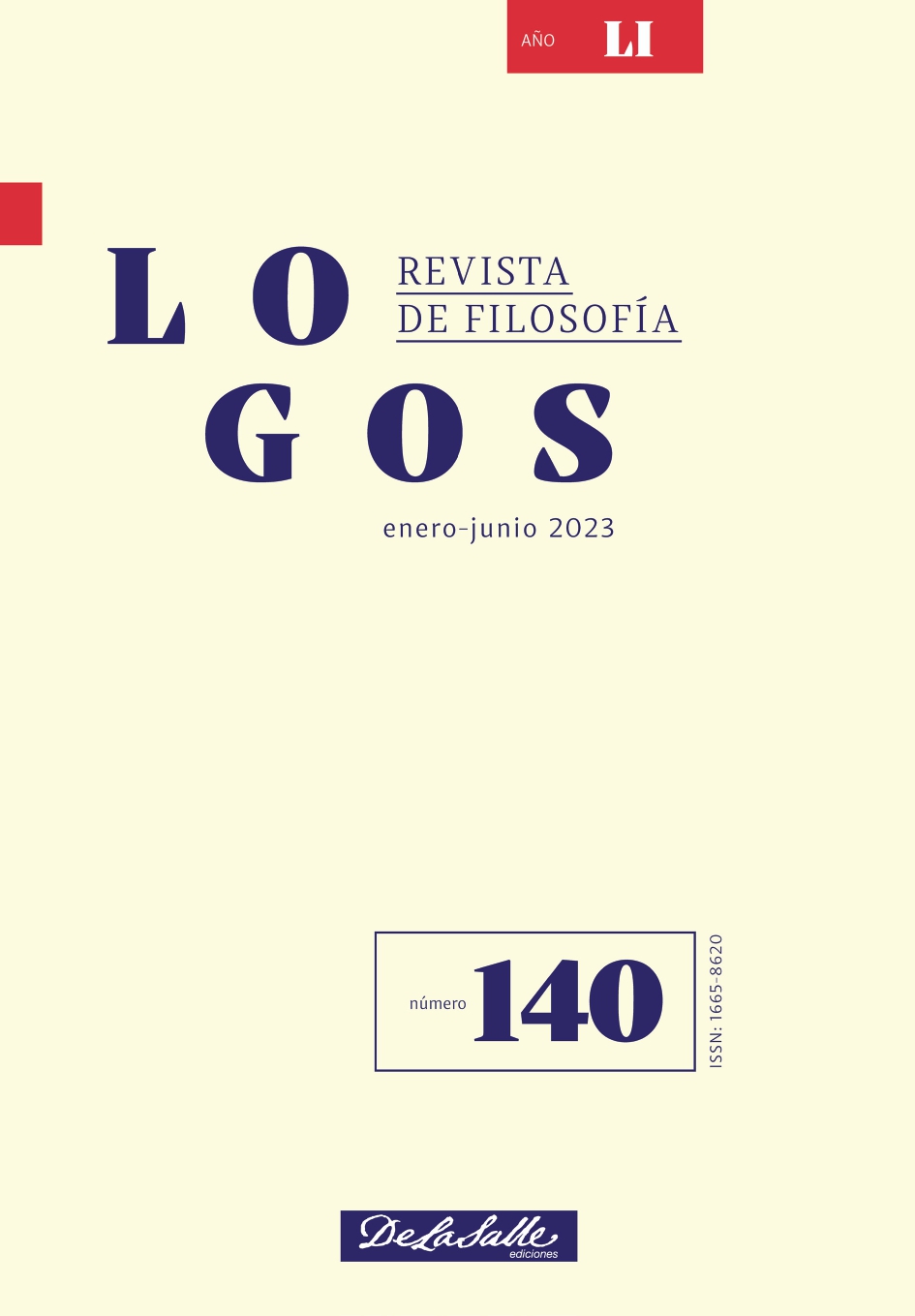The platonic innatism under the light of the leibnizian virtual innatism
DOI:
https://doi.org/10.26457/lrf.v140i140.3627Keywords:
Plato, Leibniz, innatism, mathematics, sensesAbstract
As can be read in the Nouveaux Essais, Leibniz proclaimed himself a follower
of Plato. He thought that, in order to appreciate the validity of the results reached
by Plato, the Platonic reminiscence should be interpreted leaving aside
the Platonic theory of the pre-existence of the soul. Taking Leibnizian innatism
and the Leibnizian critique of Platonic innatism as points of support,
this essay analyzes the three Platonic dialogues that deal with the theme of
reminiscence, in order to extract the current results of Plato’s innatist theory.
The myths about the reminiscence of Plato, the relationship between mathematical
knowledge and innateness, as well as the role of the senses in the apperception
of innate knowledge are explored.
Downloads
References
Chomsky, N. (1969). Lingüística cartesiana (E. Wulff, Trad.). Gredos. (Obra original publicada en 1966).
Descartes, R. (1903). OEuvres de Descartes (Vol. 5, Ch. Adam y P. Tannery, Eds.). Léopold Cerf.
Descartes, R. (1904). OEuvres de Descartes (Vol. 7, Ch. Adam y P. Tannery, Eds.). Léopold Cerf.
Descartes, R. (2011). Meditaciones metafísicas seguidas de las objeciones y respuestas. En Obras de Descartes (J.A. Díaz, Trad., pp. 153-414). Gredos.
Eggers Lan, C. (1971). Introducción a la lectura del “Fedón”. En El “Fedón” de Platón (C. Eggers Lan, Trad., pp. 9 74). Eudeba.
Gualeni, S. (2015). Virtual worlds as philosophical tools: How to philosophize with a digital hammer. Palgrave Mcmillan.
Herrera, A. (1990). El innatismo de Leibniz. Diánoia, 36(36), 111-120. doi: https://doi.org/10.22201/iifs.18704913e.1990.36.620
Hunter, G. e Inwood, B. (1984). “Plato, Leibniz, and the furnished soul”. Journal of the History of Philosophy, 22(4), 423-434.
Leibniz, G. W. (1962). Sämtliche Schriften und Briefe (Vol. 6). Akademie Verlag.
Leibniz, G. W. (1971). Sämtliche Schriften und Briefe (Vol. 1). Akademie Verlag.
Leibniz, G. W. (1890a). Die Philosophischen Schriften von Gottfried Wilhelm Leibniz (Vol. 6, C. I. Gerhardt, Ed.). Weidmann.
Leibniz, G. W. (1890b). Die Philosophischen Schriften von Gottfried Wilhelm Leibniz (Vol. 7, C. I. Gerhardt, Ed.). Weidmann.
Leibniz, G. W. (1962). Nouveaux essais sur l’entendement humain. En Sämtliche Schriften und Briefe. Vol. 6 (pp. 39-528). Akademie Verlag.
Leibniz, G. W. (1981). Monadología. Edición trilingüe (J. Velarde, Trad.). Pentalfa.
Leibniz, G. W. (1983). Nuevos ensayos sobre el entendimiento humano (J. Echeverría Ezponda, Ed.). Editora Nacional.
Locke, J. (1824). An essay concerning human understanding, to the end of Book
III. En The works of John Locke in nine volumes. Vol. 1. (12a. ed.). Rivington.
Miller C. D. y Heeren V. E. (1979). Introducción al pensamiento matemático (F. Robledo Vázquez. Trad.). Trillas. (Obra original publicada en 1968).
Moreau, J. (1970). “Ce que Leibniz a reçu de Platon”. Akten des XIV. Internationalen Kongresses für Philosophie, V, 549-555.
Ortega y Gasset, J. (1983). La idea de principio en Leibniz y la evolución de la teoría deductiva. En Obras completas, Tomo VIII (pp. 59-356). Alianza. (Obra original publicada en 1958).
Platón. (1971). El “Fedón” de Platón (C. Eggers Lan, Trad.). Eudeba.
Platón. (1983). Menón. En Diálogos II (F. J. Olivieri Trad.) (pp. 273-338). Gredos.
Platón. (1986). Fedro. En Diálogos III. (E. Lledó Íñigo, Trad.) (pp. 289-413). Gredos.
Ross, D. (1993). Teoría de las ideas de Platón (J. L. Díez Arias, Trad.). Cátedra. (Obra original publicada en 1951).
Schrecker, P. (1951). Leibniz and the Timaeus. The Review of Metaphysics, 4(4), 495-505.
Scott, D. (1987). “Platonic anamnesis revisited”. Classical Quaterly, 37(2), 345-366.


